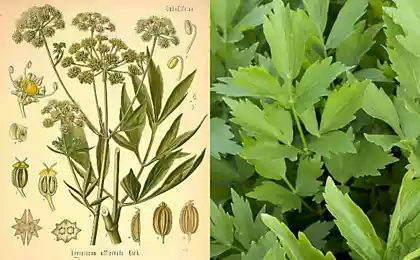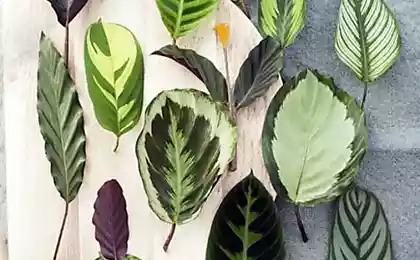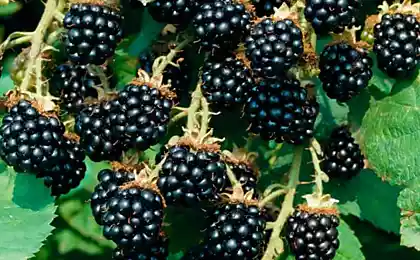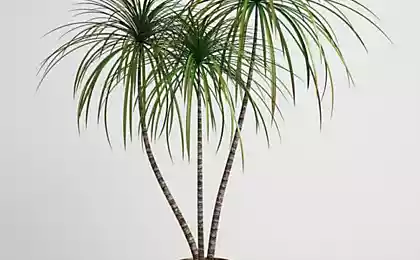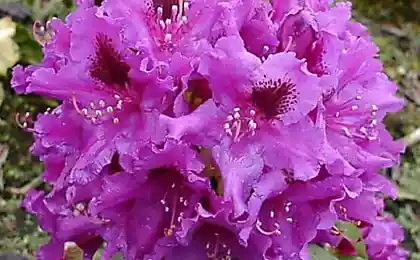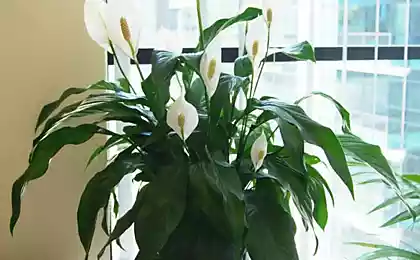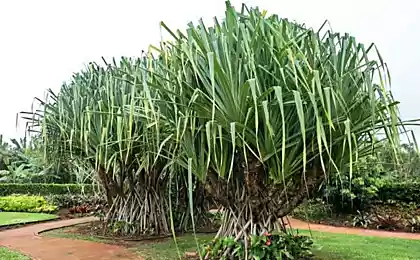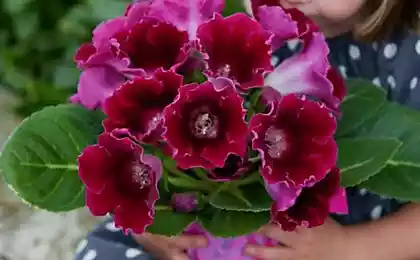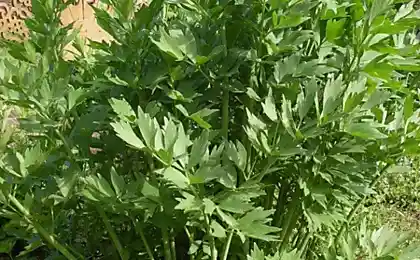387
Lovage or Zorya is a plant of ancient Russian herbalists
Zorya — so called lovage in the old days, making the accent on the first syllable. This plant was listed in ancient Russian herbals among miraculous plants that were used for preparing love potions and philtres. And this is no coincidence: up until now it is used as an effective remedy for impotence.
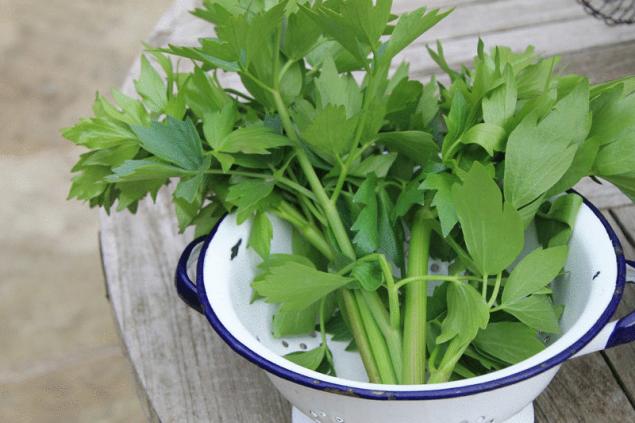
Botanical sprachelementen drug or pharmacy (Levisticum officinale) is a perennial, rhizomatous herb of the celery family, with a pleasant taste and aroma. The stem is erect, round, hollow, branched at the top, a height of 1-2 m. the Leaves are shiny dark green, lower side lighter, complex, lower — large, on long petioles, stem leaves smaller, on short petioles, upper – sessile. The flowers are small, pale yellow, collected in terminal, rounded cymes with a diameter of 6-12 cm; bloom in June-July from the second year of life. Fruit – veloplasty; ripen in July-August. Homeland: South Europe, Asia.
There are modern varieties of lovage, which can be read on the website in the article "Love-grass" — lovage.
Application
It is cultivated and runs wild spicy, medicinal and ornamental plant. In the food consumed fresh, boiled, steamed, baked or roasted roots, young leaves (seasoning), stems (candied fruits, jams), fruit (for pickling, baking bread and confectionery).
With the medical purpose use roots, less weed, possessing antispasmodic, bactericidal, diuretic, expectorant, sedative, analgesic, tonic, carminative, anthelmintic, rhodosporidium, stimulating hair growth, whitening and other effects. Contraindicated in pregnancy and acute kidney disease.
Accommodation at the cottage
Lovage attracts the attention of shining carved leaves, and a flowering period surprised by the high spike with the complex architectonics of large umbellate inflorescences. Recommended for planting on spicy beds, mixborders. At one point rising to more than 20 years; with age, growing more beautiful and tillers in width. The distance between rows 50-70, between plants 30 cm, seeding depth of 2-3 cm Unpretentious, prefers light, fertile soil.
Source: www.7dach.ru

Botanical sprachelementen drug or pharmacy (Levisticum officinale) is a perennial, rhizomatous herb of the celery family, with a pleasant taste and aroma. The stem is erect, round, hollow, branched at the top, a height of 1-2 m. the Leaves are shiny dark green, lower side lighter, complex, lower — large, on long petioles, stem leaves smaller, on short petioles, upper – sessile. The flowers are small, pale yellow, collected in terminal, rounded cymes with a diameter of 6-12 cm; bloom in June-July from the second year of life. Fruit – veloplasty; ripen in July-August. Homeland: South Europe, Asia.
There are modern varieties of lovage, which can be read on the website in the article "Love-grass" — lovage.
Application
It is cultivated and runs wild spicy, medicinal and ornamental plant. In the food consumed fresh, boiled, steamed, baked or roasted roots, young leaves (seasoning), stems (candied fruits, jams), fruit (for pickling, baking bread and confectionery).
With the medical purpose use roots, less weed, possessing antispasmodic, bactericidal, diuretic, expectorant, sedative, analgesic, tonic, carminative, anthelmintic, rhodosporidium, stimulating hair growth, whitening and other effects. Contraindicated in pregnancy and acute kidney disease.
Accommodation at the cottage
Lovage attracts the attention of shining carved leaves, and a flowering period surprised by the high spike with the complex architectonics of large umbellate inflorescences. Recommended for planting on spicy beds, mixborders. At one point rising to more than 20 years; with age, growing more beautiful and tillers in width. The distance between rows 50-70, between plants 30 cm, seeding depth of 2-3 cm Unpretentious, prefers light, fertile soil.
Source: www.7dach.ru
Simple tips for vegan nutrition
The archive documents albert Einstein published in the public domain

